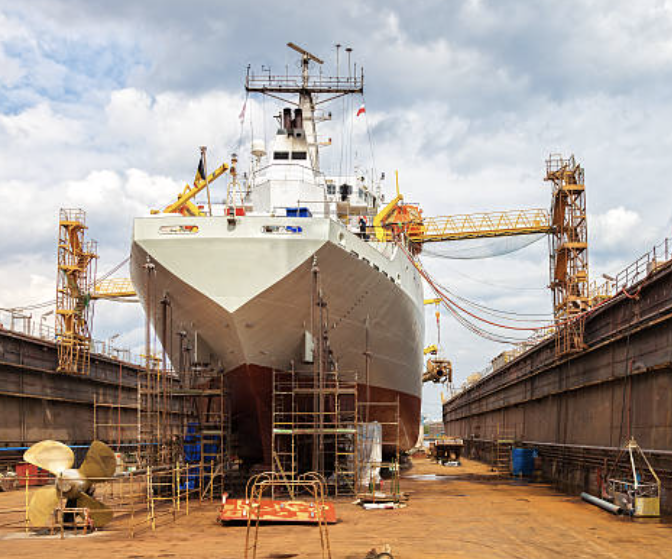
Posted on Friday, October 18, 2024
The shipbuilding industry relies heavily on metal fabrication to construct, repair, and enhance various types of vessels and marine equipment. From creating lightweight components for speedboats to automating modular construction in shipyards, metal fabrication plays a pivotal role in ensuring durability, efficiency, and performance.
Speedboats demand lightweight yet robust materials to achieve high speeds and maintain stability in water. Metal fabrication techniques, such as laser cutting and advanced welding, enable the production of lightweight aluminum or stainless steel components, including hulls, frames, and brackets. These components are engineered to reduce drag and enhance fuel efficiency while maintaining strength against harsh marine conditions.
Key Benefits:
Marine vessels require specialized equipment for various functions, such as loading, towing, and maintenance. Metal fabrication is used to produce:
Fabricators design these components with precision to meet the specific needs of the ship and ensure compliance with marine safety standards.
Key Advantages:
The rise of automation in shipbuilding has revolutionized the construction process, particularly through modular fabrication. Shipyards now produce large sections of ships in controlled environments, such as workshops, and later assemble these modules at the shipyard. Automated CNC machines and robotic welders ensure precision and speed during this process.
Why Modular Construction Matters:
Q: What is metal fabrication in shipbuilding?
A: Metal fabrication in shipbuilding involves shaping, cutting, and assembling metal materials to create parts and components for ships and marine equipment. It includes processes like welding, cutting, bending, and assembling.
Q: What are the benefits of using automation in shipbuilding?
A: Automation enhances efficiency, precision, and quality while reducing labor costs and construction time. It also ensures consistent results and minimizes errors during the fabrication process.
Q: What materials are commonly used in shipbuilding metal fabrication?
A: Common materials include steel, aluminum, and stainless steel due to their strength, durability, and resistance to corrosion.
Q: How does modular construction improve shipbuilding?
A: Modular construction allows different parts of a ship to be fabricated simultaneously, significantly reducing overall build time and ensuring higher accuracy through controlled processes.
What is modular construction in shipbuilding?
Modular construction is a method where individual ship sections are fabricated separately and assembled at the shipyard. This process improves efficiency and reduces costs.
What are the most common components fabricated for speedboats?
The most common components include lightweight hulls, structural frames, brackets, and engine mounts, all designed to enhance speed and durability.
Metal fabrication is an indispensable part of the shipbuilding industry, offering innovative solutions to meet the demands of modern maritime operations. Whether it’s fabricating lightweight speedboat components, producing specialized marine equipment, or leveraging automation for modular construction, these niche applications showcase how metal fabrication drives efficiency and innovation in shipyards worldwide.
By staying informed about advancements in metal fabrication, shipbuilders can continue to produce safer, faster, and more durable vessels while optimizing production costs and meeting industry standards.

Used Purlin Roll Forming Machines for Sale Worldwide
Posted on Sunday, January 25, 2026
Pre-Owned Roll Forming Machines for Purlin & Structural Steel Profiles

Used Roof Panel Roll Forming Machines for Sale Worldwide
Posted on Sunday, January 25, 2026
Pre-Owned Roll Forming Machines for Roofing Panel Production

Used Roll Forming Machines for Sale Worldwide
Posted on Tuesday, January 20, 2026
Pre-Owned Roll Forming Machines with Inspection, Verification & Global Support

Steel Coil Supply for Roll Forming Machines Worldwide
Posted on Tuesday, January 20, 2026
Reliable Steel Coil Supply for Roll Forming, Fabrication & Manufacturing Applications
Copyright 2026 © Machine Matcher.